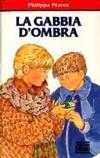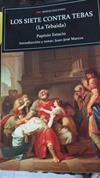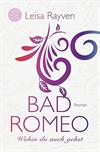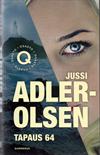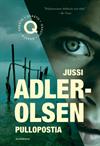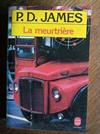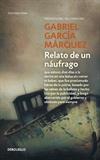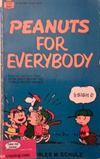
Never Too Late
1 journaler for this copy...
“If I could play the cello well, as I thought I could, I could show by my own example that we all have greater powers than we think; that whatever we want to learn to do, we probably can learn; that our lives and our possibilities are not determined and fixed by what happened to us when we were little, or vy what experts say we can or cannot do.”
Best known for his brilliant insight into the way children learn, John Holt was also an intrepid explorer of adult learning. At the age of forty, with no particular musical background, he took up the cello. His touching and hilarious account of his passionate second career demolished the myth that one must start an instrument (or a sport, or a language) in early childhood, and will inspire any reader who dreams of taking up a new skill.
Best known for his brilliant insight into the way children learn, John Holt was also an intrepid explorer of adult learning. At the age of forty, with no particular musical background, he took up the cello. His touching and hilarious account of his passionate second career demolished the myth that one must start an instrument (or a sport, or a language) in early childhood, and will inspire any reader who dreams of taking up a new skill.
Maybe because it started with the author’s childhood and youth reminiscences (linked to music) and these concern a far away time and place (the USA between the 1930ies and 50ies), I did not find the beginning of this book very exciting.
Probably because I am very ignorant music-wise, except for a few obvious ones, most of the songs and musical references of that time, were quite alien to me. I started having some fun, though, as soon as I decided to try googling some of those tunes.
And about 1/3 into the book, when Holt starts talking about the “present” (meaning the late 70ies) I was completely won over and remembered why I loved Holt's writing so much when I first heard about homeschooling and unschooling, many years ago. His capacity to observe and think about his day-to-day experience in a totally out-of-the box way is truly fascinating and inspiring.
I particularly liked his reflections on teaching (not just music teaching) and on how people need different kinds of teaching depending on their specific personality and stage of learning. A few quotes will illustrate this better than I ever could:
“The trouble with most teachers of music or anything else, is that they have in the back of their minds an idea more or less like this: ‘Learning is and can only be the result of teaching. Anything important my students learn, they learn because I teach it to them.’ ” (…) “All my own work as teacher and learner has led me to believe quite the opposite, that teaching is a very strong medicine, which like all strong medicines can quickly and easily turn into a poison. At the right time (...) and in very small doses, it can indeed help learning. But at the wrong times, or in too large doses, it will slow down learning or prevent it altogether. The right kind of teacher can be a great help to a learner, particularly of music. The wrong kind can be worse than none.”
“When I began to play the cello, and took lessons from Hal Sproul, he was the perfect teacher for me. I loved working with him, and can hardly imagine how I could have gotten started without him or someone like him. When, at age fifty, I began to play again, I took three lessons from a cellist friend, then stopped. Though I have since played a good deal of chamber music under professional coaching, I have had no further individual lessons. This seems to shock many people. When they ask, "Who are you studying with?" and I say, "No one right now," they are surprised; some even become indignant or angry. Why am I not taking lessons, they demand to know. How do I expect to learn anything unless I do! The answer is that some of what students get from their teachers, I no longer need, or can get in other ways, some I am not yet ready for, and some I don’t want at all. One of the main reasons many students take lessons is so that they will practice. Again and again you hear them say, ‘I have to go and practice. I have a lesson coming up, and my teacher will jump down my throat if I’m not prepared.’ I don’t need any such goad or threat. I like to play four hours a day, more if I can. Travel, or the pressure of other work, often make this impossible, but if I don’t get close to four hours of playing I always feel the day is a bit wasted. Also, teachers suggest to students exercises to work on and music to play. Beginners need this. Without Hal Sproul’s suggestions, I would have had no idea how to begin. (...) But now I know what music there is to play, enough for ten lifetimes, and if I need a particular kind of exercise, know ten people to ask. Time is my problem, not ignorance about what to play.”
“To the beginner the teacher also suggests ways to organize practice time. (...) He gives feedback and corrections about the students’ playing that they themselves don’t yet know enough to make. He solves technical problems for them (...). He suggests how they might interpret the music, i.e., says, play louder here, softer there, lighter here, slower there. He makes judgments about the students’ progress. And, if he is good, he inspires by his own example; the students are eager to practice not because they are afraid of the lesson but because they want to make music as beautiful as their teacher’s. All this help was valuable to me at the start. Now, for the most part, I no longer need it. Organizing my practice hours, and keeping enough variety in my practice, is a problem interesting in itself; I like to think about it, wouldn’t want to turn it all over to someone else. (…) The more musical puzzles I figure out, the more I can figure out. And I don’t need weekly judgments about my progress, either to scold or reward. (...) The time will come, or at least I hope it will, when I will need more feedback and advice about fine points of execution and interpretation than I can get by myself.”
“It is not our proper business as teachers, certainly not music teachers, to make decisions and judgments about what people are or are not "capable" of doing. It is our proper business, above all in music, to try to find ways to help people do what they want to do."
What a pity Holt is no longer among us. But what a joy to know that there are still a few of his books that I haven’t read yet.
Probably because I am very ignorant music-wise, except for a few obvious ones, most of the songs and musical references of that time, were quite alien to me. I started having some fun, though, as soon as I decided to try googling some of those tunes.
And about 1/3 into the book, when Holt starts talking about the “present” (meaning the late 70ies) I was completely won over and remembered why I loved Holt's writing so much when I first heard about homeschooling and unschooling, many years ago. His capacity to observe and think about his day-to-day experience in a totally out-of-the box way is truly fascinating and inspiring.
I particularly liked his reflections on teaching (not just music teaching) and on how people need different kinds of teaching depending on their specific personality and stage of learning. A few quotes will illustrate this better than I ever could:
“The trouble with most teachers of music or anything else, is that they have in the back of their minds an idea more or less like this: ‘Learning is and can only be the result of teaching. Anything important my students learn, they learn because I teach it to them.’ ” (…) “All my own work as teacher and learner has led me to believe quite the opposite, that teaching is a very strong medicine, which like all strong medicines can quickly and easily turn into a poison. At the right time (...) and in very small doses, it can indeed help learning. But at the wrong times, or in too large doses, it will slow down learning or prevent it altogether. The right kind of teacher can be a great help to a learner, particularly of music. The wrong kind can be worse than none.”
“When I began to play the cello, and took lessons from Hal Sproul, he was the perfect teacher for me. I loved working with him, and can hardly imagine how I could have gotten started without him or someone like him. When, at age fifty, I began to play again, I took three lessons from a cellist friend, then stopped. Though I have since played a good deal of chamber music under professional coaching, I have had no further individual lessons. This seems to shock many people. When they ask, "Who are you studying with?" and I say, "No one right now," they are surprised; some even become indignant or angry. Why am I not taking lessons, they demand to know. How do I expect to learn anything unless I do! The answer is that some of what students get from their teachers, I no longer need, or can get in other ways, some I am not yet ready for, and some I don’t want at all. One of the main reasons many students take lessons is so that they will practice. Again and again you hear them say, ‘I have to go and practice. I have a lesson coming up, and my teacher will jump down my throat if I’m not prepared.’ I don’t need any such goad or threat. I like to play four hours a day, more if I can. Travel, or the pressure of other work, often make this impossible, but if I don’t get close to four hours of playing I always feel the day is a bit wasted. Also, teachers suggest to students exercises to work on and music to play. Beginners need this. Without Hal Sproul’s suggestions, I would have had no idea how to begin. (...) But now I know what music there is to play, enough for ten lifetimes, and if I need a particular kind of exercise, know ten people to ask. Time is my problem, not ignorance about what to play.”
“To the beginner the teacher also suggests ways to organize practice time. (...) He gives feedback and corrections about the students’ playing that they themselves don’t yet know enough to make. He solves technical problems for them (...). He suggests how they might interpret the music, i.e., says, play louder here, softer there, lighter here, slower there. He makes judgments about the students’ progress. And, if he is good, he inspires by his own example; the students are eager to practice not because they are afraid of the lesson but because they want to make music as beautiful as their teacher’s. All this help was valuable to me at the start. Now, for the most part, I no longer need it. Organizing my practice hours, and keeping enough variety in my practice, is a problem interesting in itself; I like to think about it, wouldn’t want to turn it all over to someone else. (…) The more musical puzzles I figure out, the more I can figure out. And I don’t need weekly judgments about my progress, either to scold or reward. (...) The time will come, or at least I hope it will, when I will need more feedback and advice about fine points of execution and interpretation than I can get by myself.”
“It is not our proper business as teachers, certainly not music teachers, to make decisions and judgments about what people are or are not "capable" of doing. It is our proper business, above all in music, to try to find ways to help people do what they want to do."
What a pity Holt is no longer among us. But what a joy to know that there are still a few of his books that I haven’t read yet.
